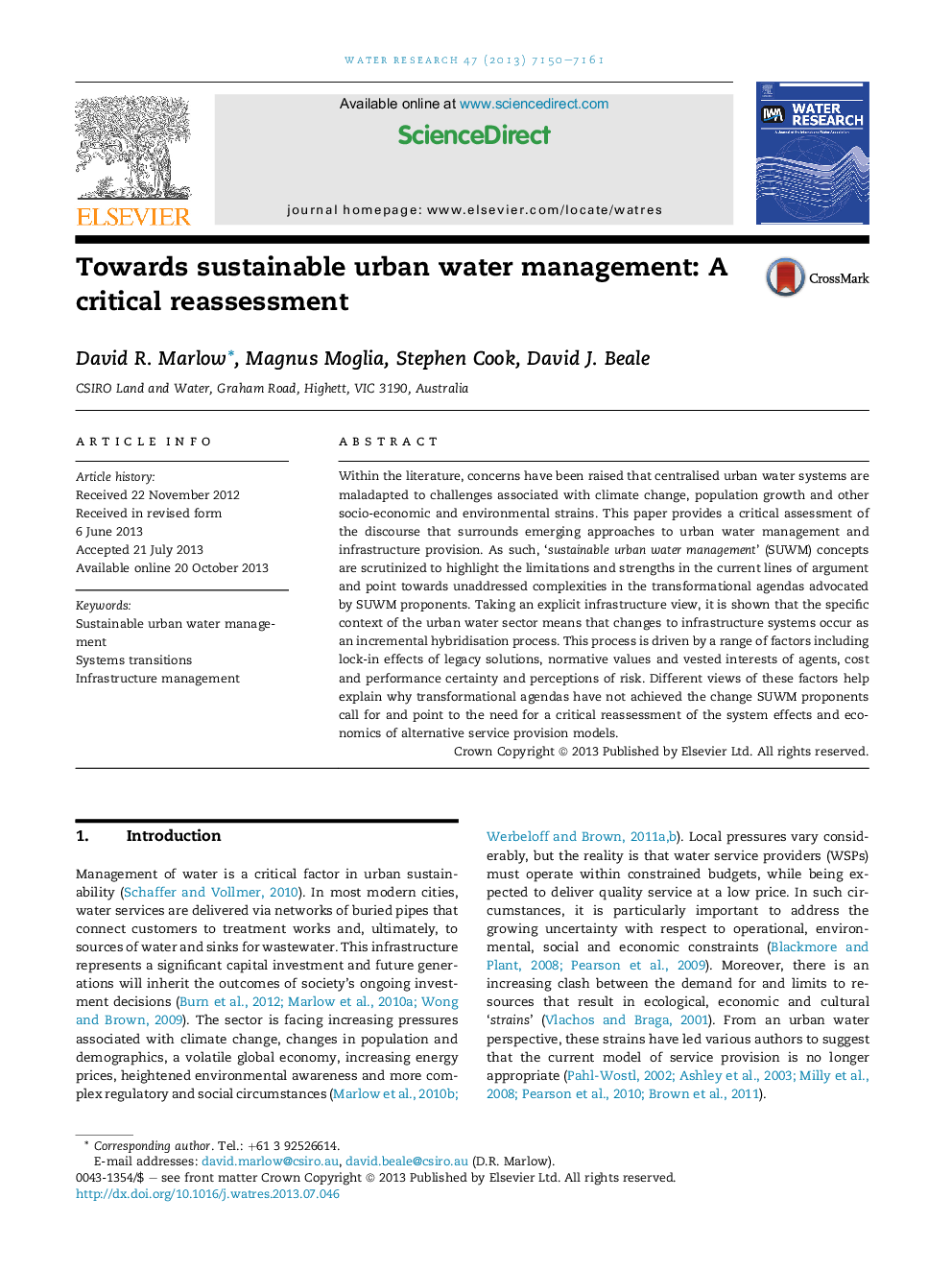| Article ID | Journal | Published Year | Pages | File Type |
|---|---|---|---|---|
| 6367109 | Water Research | 2013 | 12 Pages |
Abstract
Within the literature, concerns have been raised that centralised urban water systems are maladapted to challenges associated with climate change, population growth and other socio-economic and environmental strains. This paper provides a critical assessment of the discourse that surrounds emerging approaches to urban water management and infrastructure provision. As such, 'sustainable urban water management' (SUWM) concepts are scrutinized to highlight the limitations and strengths in the current lines of argument and point towards unaddressed complexities in the transformational agendas advocated by SUWM proponents. Taking an explicit infrastructure view, it is shown that the specific context of the urban water sector means that changes to infrastructure systems occur as an incremental hybridisation process. This process is driven by a range of factors including lock-in effects of legacy solutions, normative values and vested interests of agents, cost and performance certainty and perceptions of risk. Different views of these factors help explain why transformational agendas have not achieved the change SUWM proponents call for and point to the need for a critical reassessment of the system effects and economics of alternative service provision models.
Related Topics
Physical Sciences and Engineering
Earth and Planetary Sciences
Earth-Surface Processes
Authors
David R. Marlow, Magnus Moglia, Stephen Cook, David J. Beale,
